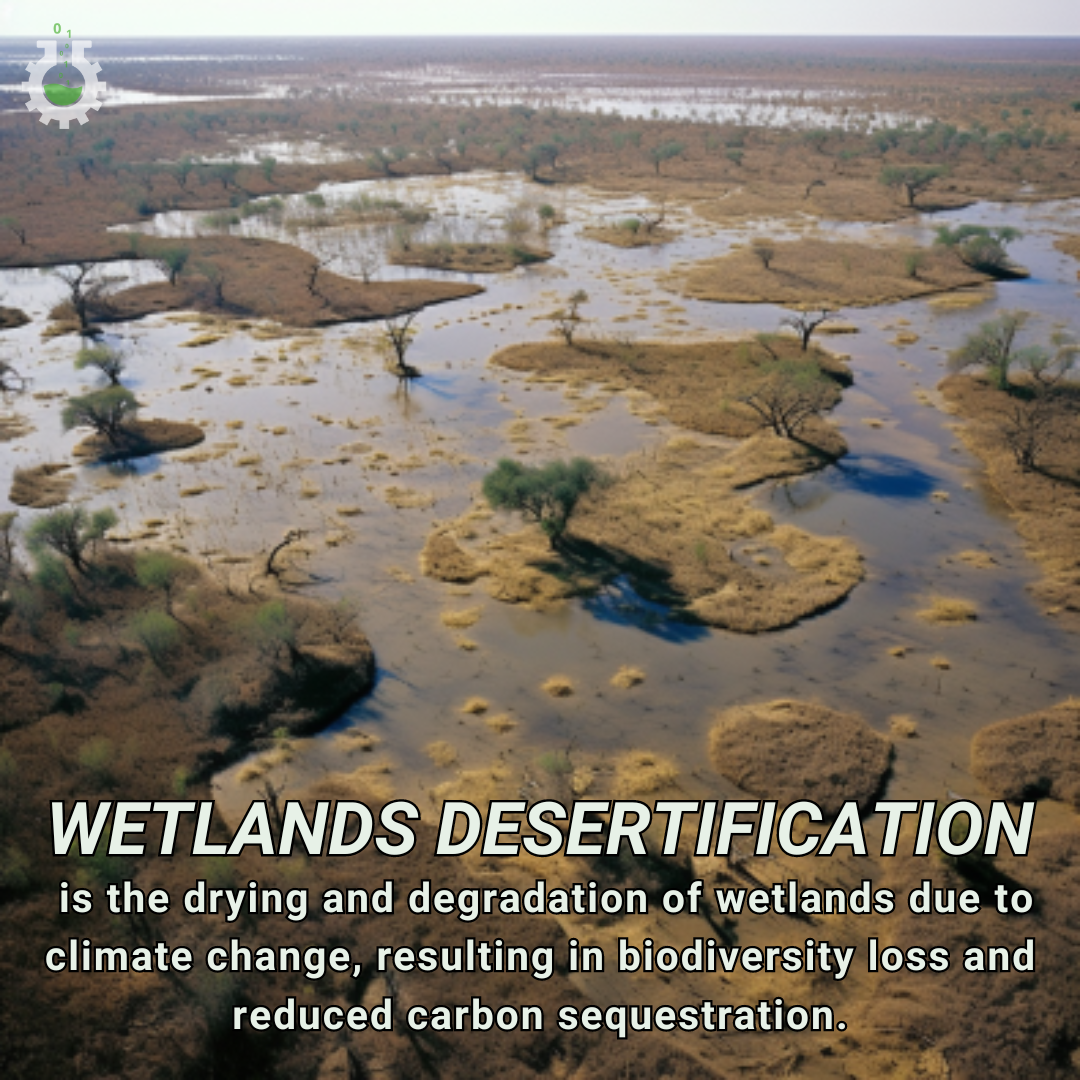June 7, 2024
Climate Change Poster Collection of the Day – Wetlands Desertification
Book a Demo
Today’s Climate Change Poster Collection highlights Wetlands Desertification. Wetlands are among the most productive and valuable ecosystems on our planet, offering a plethora of ecological, economic, and social benefits. These unique landscapes act as natural water filters, trapping pollutants and sediments, and serve as critical habitats for a diverse array of plant and animal species. Additionally, wetlands function as significant carbon sinks, absorbing and storing vast amounts of carbon dioxide, which helps mitigate climate change. However, these vital ecosystems are increasingly under threat from desertification—a process where fertile land transforms into desert-like conditions due to factors such as prolonged drought, deforestation, and unsustainable agricultural practices.
Climate change plays a pivotal role in exacerbating desertification and poses a severe threat to the health and sustainability of wetlands. Rising global temperatures and shifting precipitation patterns lead to more frequent and intense droughts, reducing water availability and causing wetlands to dry up. When wetlands lose water, they also lose their ability to sequester carbon effectively. The drying of wetlands results in the release of previously stored carbon dioxide and methane into the atmosphere, contributing to the greenhouse effect and further accelerating global warming. This creates a feedback loop where climate change intensifies desertification, which in turn exacerbates climate change.
Moreover, extreme weather events such as hurricanes, floods, and heatwaves, which are becoming more common due to climate change, can cause physical damage to wetlands and disrupt their ecological balance. For example, storm surges can lead to saltwater intrusion in freshwater wetlands, altering the habitat and making it inhospitable for many species. Similarly, intense rainfall can lead to erosion and the loss of wetland soil, further degrading these ecosystems.
The consequences of wetland desertification are far-reaching, affecting not only local biodiversity but also human communities that rely on these ecosystems for their livelihoods. Wetlands support fisheries, agriculture, and tourism, and their degradation can lead to economic losses and food insecurity. Furthermore, the loss of wetlands reduces natural flood control and water purification services, increasing the vulnerability of human populations to natural disasters and waterborne diseases.
Given the critical role that wetlands play in maintaining ecological balance and combating climate change, it is imperative to prioritize their protection and restoration. Efforts to combat desertification should include sustainable land management practices, reforestation, and the implementation of policies aimed at reducing greenhouse gas emissions. Additionally, restoring degraded wetlands through hydrological management, vegetation planting, and soil conservation can help revive their ecological functions and enhance their resilience to climate change.
Wetlands are invaluable ecosystems that face significant threats from desertification and climate change. Protecting and restoring these areas is essential not only for preserving biodiversity but also for mitigating climate change and ensuring the sustainability of natural resources for future generations. By taking concerted action to address the drivers of desertification and climate change, we can safeguard the health of wetlands and the myriad benefits they provide to both nature and humanity.
Discover an inspiring collection of climate change poster.



